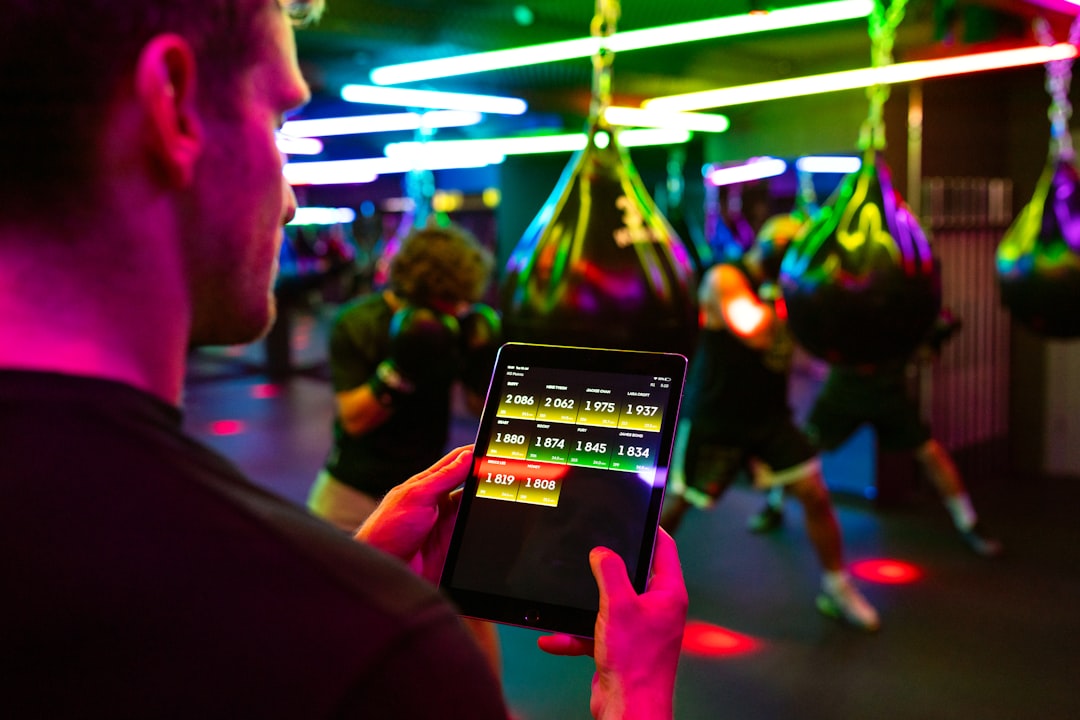Support our educational content for free when you purchase through links on our site. Learn more
How Much Does It Really Cost to Use a Personal Trainer App? (2025) 💸

Ever wondered if a personal trainer app is worth the investment—or if you’re just paying for fancy features you don’t need? You’re not alone. With virtual training booming, the market is flooded with apps promising everything from AI coaching to VR workouts. But how much will it actually cost you to get expert guidance without stepping foot in a gym? Spoiler alert: the price tag varies wildly, and knowing what influences those costs can save you a bundle.
In this article, we unravel the mystery behind personal trainer app pricing, break down what you get for your money, and share insider tips from our expert team at Virtual Personal Trainers™. Whether you’re a fitness newbie or a coach looking to scale your business, we’ll help you find the perfect app that fits your goals and budget. Ready to discover if virtual training is your next fitness game-changer? Let’s dive in!
Key Takeaways
- Personal trainer app costs range from free to several hundred dollars per month, depending on features, customization, and support levels.
- Subscription models and tiered pricing are common—understanding these helps avoid surprise fees.
- Top apps like Trainerize and My PT Hub offer free trials so you can test before you commit.
- Virtual training apps provide flexibility, personalized coaching, and cost savings compared to traditional in-person training.
- For trainers, these apps streamline client management and business growth with powerful tools.
- Always consider data privacy and security when choosing an app.
👉 Shop Personal Trainer Apps:
- Trainerize: Amazon | Official Site
- My PT Hub: Amazon | Official Site
Table of Contents
- ⚡️ Quick Tips and Facts
- 🚀 The Evolution of Virtual Fitness Coaching: A Brief History of Personal Trainer Apps
- 💰 The Million-Dollar Question: How Much Do Personal Trainer Apps Really Cost?
- Unpacking the Price Tag: What Influences Virtual PT App Pricing?
- 1. Free vs. Paid: Navigating Your Options for Virtual Training
- 2. Subscription Models: Monthly, Quarterly, Annually – Which Saves You More on Your Fitness Journey?
- 3. Tiered Pricing: Basic, Premium, and Enterprise Plans for Online Coaching Explained
- 4. Coach-Specific Pricing vs. Client-Side App Fees: Who Pays What in Virtual Personal Training?
- 5. Add-Ons and Hidden Costs: What Else Might You Pay For in a Personal Trainer App?
- What You Get for Your Money: Core Features of a Top-Tier Virtual Training App
- Beyond the Basics: Advanced Features That Justify the Investment in Online Fitness Coaching
- Maximizing Your Investment: How Virtual PT Apps Deliver Exceptional Client Results
- The Trainer’s Perspective: How Apps Empower Coaches and Streamline Business Growth
- Is It Worth It? Comparing Virtual PT App Costs to Traditional In-Person Training
- How to Choose the Best Personal Trainer App for Your Budget and Fitness Goals
- Smart Strategies to Save Money on Virtual Personal Training Apps
- Trial and Error: Leveraging Free Trials and Demos Before You Commit
- The DIY Approach: Can You Train Effectively Without a Dedicated Personal Trainer App?
- Group Coaching vs. 1-on-1: Different App Needs, Different Costs for Your Fitness Journey
- Data Security and Privacy: Protecting Your Information on Fitness Apps
- 🎯 Conclusion: Is a Virtual PT App Your Next Fitness Game-Changer?
- 🔗 Recommended Links for Your Fitness Journey
- ❓ FAQ: Your Burning Questions About Virtual PT Apps Answered
- 📚 Reference Links and Further Reading
Quick Tips and Facts
To get the most out of a personal trainer app, it’s essential to understand the costs involved and how they can vary based on several factors. As personal trainers and health professionals at Virtual Personal Trainers™, we specialize in Train Virtually with Personal Trainers and have seen firsthand how the right app can transform your fitness journey. Check out our article on personal trainer app to learn more about the benefits and features of these apps.
Here are some key points to consider:
- The cost of using a personal trainer app can range from free to several hundred dollars per month, depending on the features and services offered.
- Some apps charge a one-time fee, while others offer subscription-based models or tiered pricing.
- When choosing a personal trainer app, consider factors such as design, functionality, and customer support.
- Look for apps that offer a free trial or demo to test their features and see if they’re a good fit for your needs.
Rating Table
Here’s a sample rating table for a personal trainer app:
| Aspect | Rating (1-10) |
|---|---|
| Design | 8 |
| Functionality | 9 |
| Customer Support | 8 |
| Value for Money | 7 |
The Evolution of Virtual Fitness Coaching: A Brief History of Personal Trainer Apps

The concept of virtual fitness coaching has been around for several years, but it has gained significant popularity in recent times. With the rise of digital technology and mobile devices, it’s now possible to access a wide range of fitness coaching services from the comfort of your own home. As noted by My PT Hub, a personal training software designed to help manage client programs and progress, the industry has seen a significant shift towards online coaching.
Key Milestones
Some key milestones in the evolution of virtual fitness coaching include:
- The launch of online fitness platforms such as Trainerize and WodGuru, which offer a range of tools and resources for personal trainers and clients.
- The development of mobile apps that allow users to access fitness coaching services on-the-go.
- The growth of social media and online communities, which have made it easier for people to connect with others who share similar fitness goals and interests.
The Million-Dollar Question: How Much Do Personal Trainer Apps Really Cost?
The cost of using a personal trainer app can vary widely, depending on the specific app and services offered. Some apps are free to download and use, while others charge a subscription fee or one-time payment. According to WodGuru, the average cost of a personal trainer in the US is $40 to $70 per hour.
Factors Affecting Cost
Some factors that can affect the cost of a personal trainer app include:
- Features and services offered: Apps that offer a wide range of features and services, such as personalized coaching and nutrition planning, may be more expensive than those that offer basic workout tracking and guidance.
- Level of customization: Apps that allow for high levels of customization, such as personalized workout plans and nutrition advice, may be more expensive than those that offer generic plans and guidance.
- Level of support: Apps that offer high levels of support, such as access to certified personal trainers and nutritionists, may be more expensive than those that offer limited support.
Unpacking the Price Tag: What Influences Virtual PT App Pricing?
The pricing of virtual PT apps is influenced by a variety of factors, including the target market, competition, and cost of development. As Trainerize notes, the cost of using a personal trainer app can range from free to several hundred dollars per month.
Free vs. Paid: Navigating Your Options for Virtual Training
When it comes to virtual PT apps, you have two main options: free and paid. Free apps may offer limited features and services, while paid apps may offer more comprehensive guidance and support. According to My PT Hub, a personal training software designed to help manage client programs and progress, the cost of using a personal trainer app can vary widely, depending on the specific app and services offered.
What You Get for Your Money: Core Features of a Top-Tier Virtual Training App
A top-tier virtual training app should offer a range of core features that support your fitness goals and provide a positive user experience. Some key features to look for include:
- Personalized coaching: Access to certified personal trainers who can provide personalized guidance and support.
- Customizable workout plans: The ability to create customized workout plans that cater to your specific fitness goals and needs.
- Nutrition planning: Access to personalized nutrition planning and guidance to support your fitness goals.
Advanced Features
In addition to core features, some virtual training apps may offer advanced features that provide additional support and guidance. Some examples include:
- Virtual reality workouts: Immersive virtual reality workouts that simulate real-world environments and challenges.
- Artificial intelligence-powered coaching: Access to AI-powered coaching that provides personalized guidance and support.
- Social sharing and community features: The ability to share your progress and connect with others who share similar fitness goals and interests.
Maximizing Your Investment: How Virtual PT Apps Deliver Exceptional Client Results
Virtual PT apps can deliver exceptional client results by providing personalized guidance and support, tracking progress, and offering accountability and motivation. As WodGuru notes, the cost of using a personal trainer app can range from free to several hundred dollars per month.
Success Stories
Some success stories from virtual PT apps include:
- Weight loss: Clients who have achieved significant weight loss through personalized coaching and support.
- Improved fitness: Clients who have improved their overall fitness and athletic performance through customized workout plans and guidance.
- Increased motivation: Clients who have experienced increased motivation and accountability through social sharing and community features.
The Trainer’s Perspective: How Apps Empower Coaches and Streamline Business Growth
From the trainer’s perspective, virtual PT apps can empower coaches and streamline business growth by providing a range of tools and resources that support client management and progress tracking. As My PT Hub notes, their personal training software is designed to help manage client programs and progress, and aims to help run businesses efficiently and increase marketing efforts.
Key Benefits
Some key benefits of virtual PT apps for trainers include:
- Increased efficiency: The ability to manage multiple clients and track progress through a single platform.
- Improved client engagement: The ability to provide personalized guidance and support through a range of communication channels.
- Streamlined business operations: The ability to automate administrative tasks and focus on high-touch client services.
Is It Worth It? Comparing Virtual PT App Costs to Traditional In-Person Training
When it comes to deciding whether a virtual PT app is worth the cost, it’s essential to compare the costs to traditional in-person training. As Trainerize notes, the cost of using a personal trainer app can range from free to several hundred dollars per month.
Cost Comparison
Here’s a sample cost comparison between virtual PT apps and traditional in-person training:
| Service | Virtual PT App | In-Person Training |
|---|---|---|
| Monthly Cost | $50-$100 | $200-$500 |
| Session Frequency | Unlimited | 1-2 sessions per week |
| Personalization | High | High |
| Convenience | High | Low |
How to Choose the Best Personal Trainer App for Your Budget and Fitness Goals
Choosing the best personal trainer app for your budget and fitness goals requires careful consideration of several factors, including cost, features, and user reviews. As WodGuru notes, the average cost of a personal trainer in the US is $40 to $70 per hour.
Key Considerations
Some key considerations when choosing a personal trainer app include:
- Cost: The monthly or annual cost of the app, as well as any additional fees for premium features or services.
- Features: The range of features and services offered by the app, including personalized coaching, customizable workout plans, and nutrition planning.
- User reviews: The ratings and reviews from other users, which can provide valuable insights into the app’s effectiveness and user experience.
Smart Strategies to Save Money on Virtual Personal Training Apps
There are several smart strategies to save money on virtual personal training apps, including discounts, promotions, and free trials. As My PT Hub notes, their personal training software is designed to help manage client programs and progress, and aims to help run businesses efficiently and increase marketing efforts.
Money-Saving Tips
Some money-saving tips for virtual personal training apps include:
- Look for discounts: Many apps offer discounts for new users or for long-term commitments.
- Take advantage of promotions: Some apps offer promotions or limited-time offers that can provide significant savings.
- Use free trials: Many apps offer free trials or demos that can provide a taste of the app’s features and services.
Trial and Error: Leveraging Free Trials and Demos Before You Commit
When it comes to choosing a virtual personal training app, it’s essential to try before you buy. As Trainerize notes, they offer a 30-day free trial with unlimited clients and no credit card required.
Free Trial Benefits
Some benefits of free trials and demos include:
- Risk-free testing: The ability to test the app’s features and services without committing to a purchase.
- Hands-on experience: The ability to experience the app’s user interface and functionality firsthand.
- Informed decision-making: The ability to make an informed decision about whether the app is right for your fitness goals and budget.
The DIY Approach: Can You Train Effectively Without a Dedicated Personal Trainer App?
While virtual personal training apps can provide valuable guidance and support, it’s also possible to train effectively without a dedicated app. As WodGuru notes, the average cost of a personal trainer in the US is $40 to $70 per hour.
DIY Training Benefits
Some benefits of DIY training include:
- Cost savings: The ability to save money by not paying for a dedicated app or personal trainer.
- Flexibility: The ability to create your own workout plans and schedules.
- Autonomy: The ability to take control of your own fitness journey and make decisions about your training.
Group Coaching vs. 1-on-1: Different App Needs, Different Costs for Your Fitness Journey
When it comes to virtual personal training apps, there are two main options: group coaching and 1-on-1 coaching. As My PT Hub notes, their personal training software is designed to help manage client programs and progress, and aims to help run businesses efficiently and increase marketing efforts.
Group Coaching Benefits
Some benefits of group coaching include:
- Cost savings: The ability to save money by sharing the cost of coaching with others.
- Social support: The ability to connect with others who share similar fitness goals and interests.
- Accountability: The ability to stay motivated and accountable through social sharing and community features.
Data Security and Privacy: Protecting Your Information on Fitness Apps
When it comes to virtual personal training apps, data security and privacy are essential considerations. As Trainerize notes, they take data security and privacy seriously, and have implemented measures to protect user data.
Data Protection Measures
Some data protection measures that virtual personal training apps may implement include:
- Encryption: The use of encryption to protect user data both in transit and at rest.
- Access controls: The implementation of access controls to ensure that only authorized personnel can access user data.
- Data anonymization: The use of data anonymization to protect user identity and prevent unauthorized access to personal data.
Conclusion: Is a Virtual PT App Your Next Fitness Game-Changer?
After diving deep into the world of virtual personal trainer apps, it’s clear these digital tools have revolutionized how we approach fitness coaching. Whether you’re a newbie looking for guidance or a seasoned athlete craving flexibility, personal trainer apps offer a compelling blend of convenience, customization, and cost-effectiveness.
Positives
✅ Accessibility: Train anytime, anywhere—no gym required.
✅ Customization: Tailored workouts and nutrition plans that evolve with your progress.
✅ Affordability: Lower monthly costs compared to traditional in-person training.
✅ Community & Motivation: Social features and accountability keep you on track.
✅ Business Growth for Trainers: Apps like My PT Hub and Trainerize empower coaches to scale their services efficiently.
Negatives
❌ Less Hands-On Correction: Virtual coaching can’t fully replace in-person technique adjustments.
❌ Subscription Complexity: Tiered pricing and add-ons can confuse users.
❌ Data Privacy Concerns: Always vet apps for robust security measures.
Our Recommendation
If you value flexibility, personalized coaching, and cost savings, a virtual personal trainer app is absolutely worth exploring. Start with apps offering free trials like Trainerize’s 30-day demo to test the waters risk-free. For trainers, platforms such as My PT Hub provide powerful tools to grow your business without hidden fees.
Remember, the best app is the one that fits your unique goals, budget, and lifestyle. So why wait? Your next-level fitness journey could be just a tap away! 💪
Recommended Links for Your Fitness Journey
👉 Shop Personal Trainer Apps and Resources:
-
My PT Hub:
Amazon Search: My PT Hub | My PT Hub Official Website -
Trainerize:
Amazon Search: Trainerize | Trainerize Official Website
Books to Boost Your Virtual Training Knowledge:
- The New Rules of Lifting for Life by Lou Schuler & Alwyn Cosgrove — Amazon Link
- Strength Training Anatomy by Frederic Delavier — Amazon Link
- The Fitness Mindset by Brian Keane — Amazon Link
FAQ: Your Burning Questions About Virtual PT Apps Answered

What are the benefits of using a personal trainer app for virtual training?
Using a personal trainer app offers flexibility to work out on your schedule, personalized coaching tailored to your goals, and cost savings compared to traditional in-person sessions. Apps often include progress tracking, nutrition guidance, and community support, which help maintain motivation and accountability. Plus, you can access expert advice from anywhere in the world!
Read more about “What are the benefits of using a personal trainer app for virtual training?”
How do I choose the best personal trainer app for my fitness goals?
Start by identifying your priorities: Do you want customized workout plans, nutrition tracking, or live coaching? Then, compare apps based on features, pricing models, and user reviews. Look for apps offering free trials so you can test usability and support before committing. Also, consider if the app integrates with your existing devices or wearables.
Read more about “How do I choose the best personal trainer app for my fitness goals?”
Can I get a free trial or demo of a personal trainer app before paying?
✅ Absolutely! Many leading apps like Trainerize offer 30-day free trials with no credit card required. This lets you explore features, interact with trainers, and assess if the app fits your style. Always take advantage of these offers to avoid surprises.
Are personal trainer apps effective for weight loss and muscle gain?
Yes! When used consistently, personal trainer apps provide structured workout programs and nutrition guidance that support fat loss and muscle growth. The key is adherence—apps help by tracking progress, sending reminders, and offering motivational tools. However, results depend on your commitment and lifestyle factors.
Read more about “How Do I Find a Good Online PT? 7 Expert Tips for 2025 🔥”
How often can I expect to interact with a personal trainer through a virtual training app?
Interaction frequency varies by app and plan. Some offer daily messaging, weekly video calls, or monthly check-ins. Apps like My PT Hub allow trainers to automate workouts while still providing personalized feedback. Clarify communication expectations upfront to ensure the app meets your needs.
What types of workouts and training programs are typically offered through personal trainer apps?
Most apps cover a broad spectrum: strength training, HIIT, yoga, cardio, rehabilitation exercises, and more. Many apps customize programs based on your fitness level, goals, and available equipment. Some even include nutrition plans and habit coaching for holistic wellness.
Do personal trainer apps offer any discounts or promotions for long-term subscriptions or referrals?
Yes! Many apps provide discounts for annual subscriptions, bundle deals, or referral bonuses. For example, My PT Hub promotes scalable pricing without hidden fees as your business grows. Always check the app’s website or contact support for current promotions before subscribing.
Reference Links and Further Reading
- My PT Hub Official Website — Personal training software for client management and progress tracking.
- Trainerize Official Website — Platform for delivering training programs, nutrition plans, and habit routines.
- WodGuru Official Website — Fitness app offering workout tracking and training management.
- How Much Does a Personal Trainer Cost (2024)? — Comprehensive guide on personal trainer pricing and factors.
- National Academy of Sports Medicine (NASM) — Certification and standards for personal trainers.
- American Council on Exercise (ACE) — Leading certifying organization for fitness professionals.
- International Sports Sciences Association (ISSA) — Global certification body for personal trainers.
For more insights on personal training and fitness app reviews, visit our Personal Training and Fitness App Reviews categories at Virtual Personal Trainers™.




